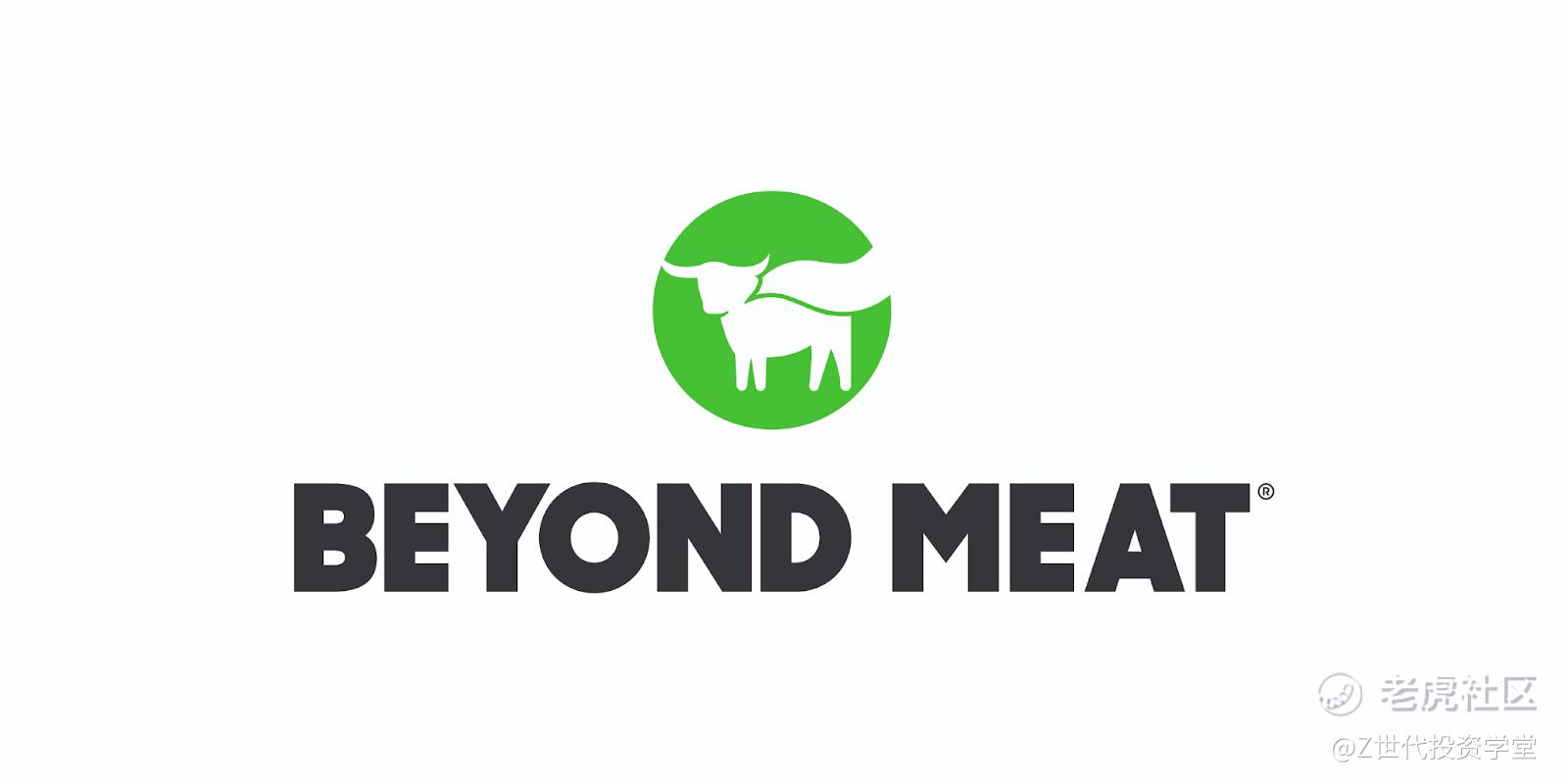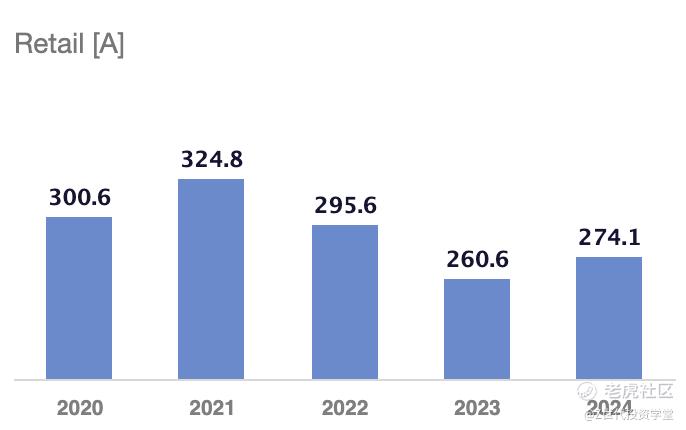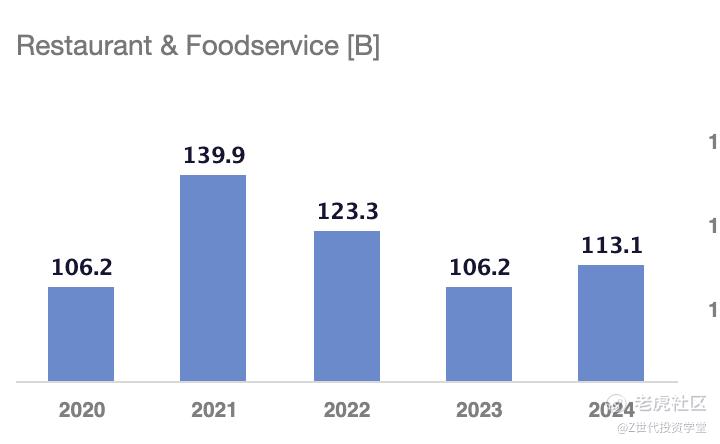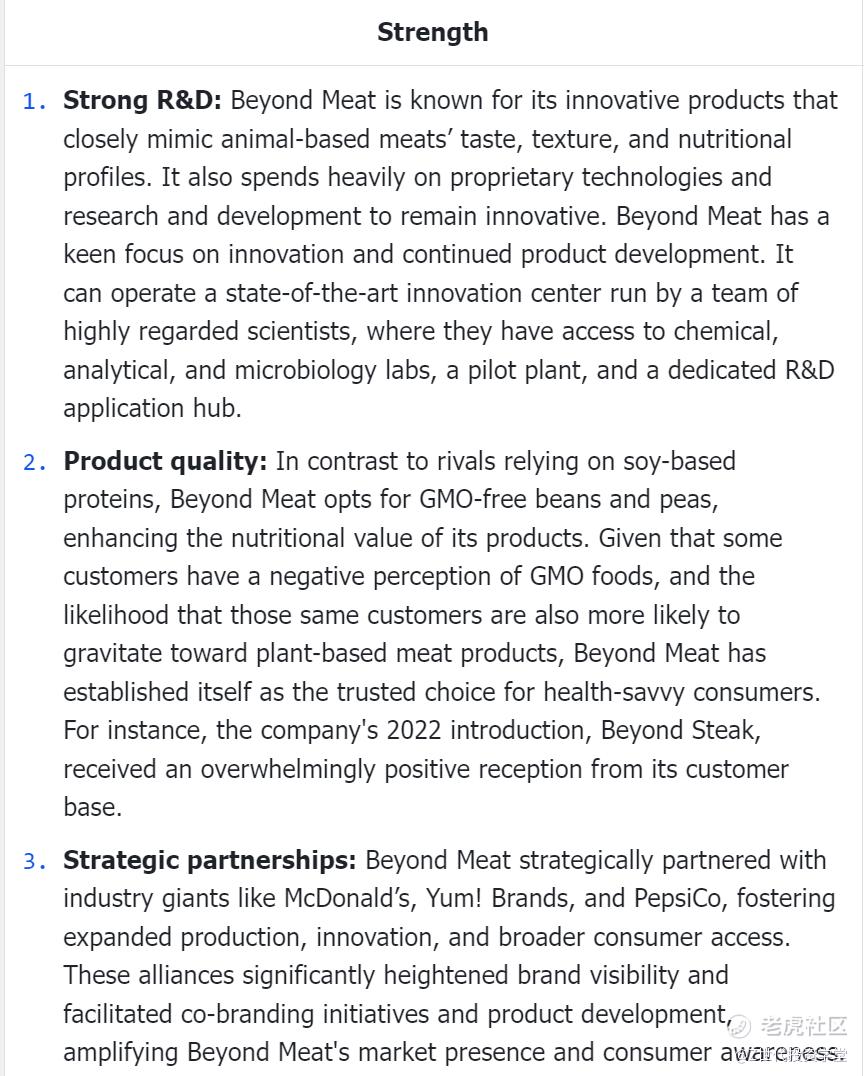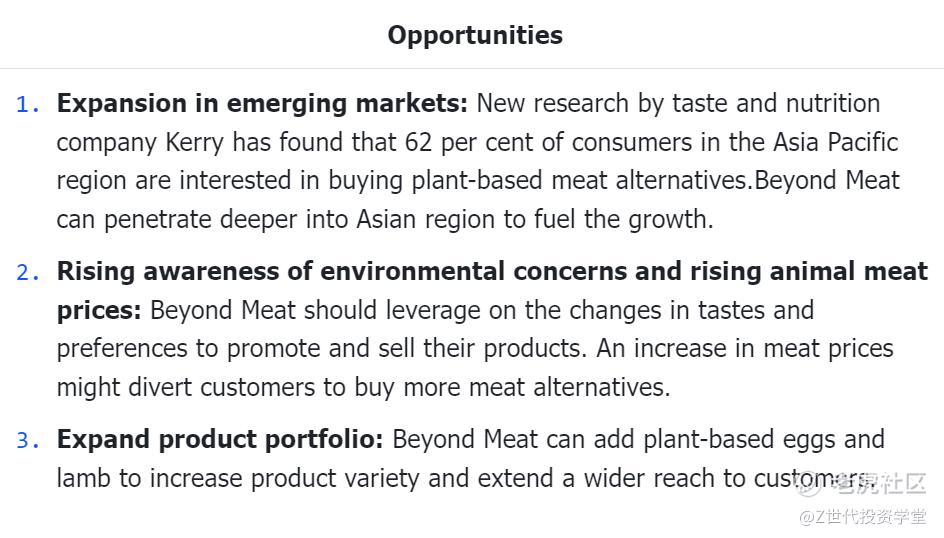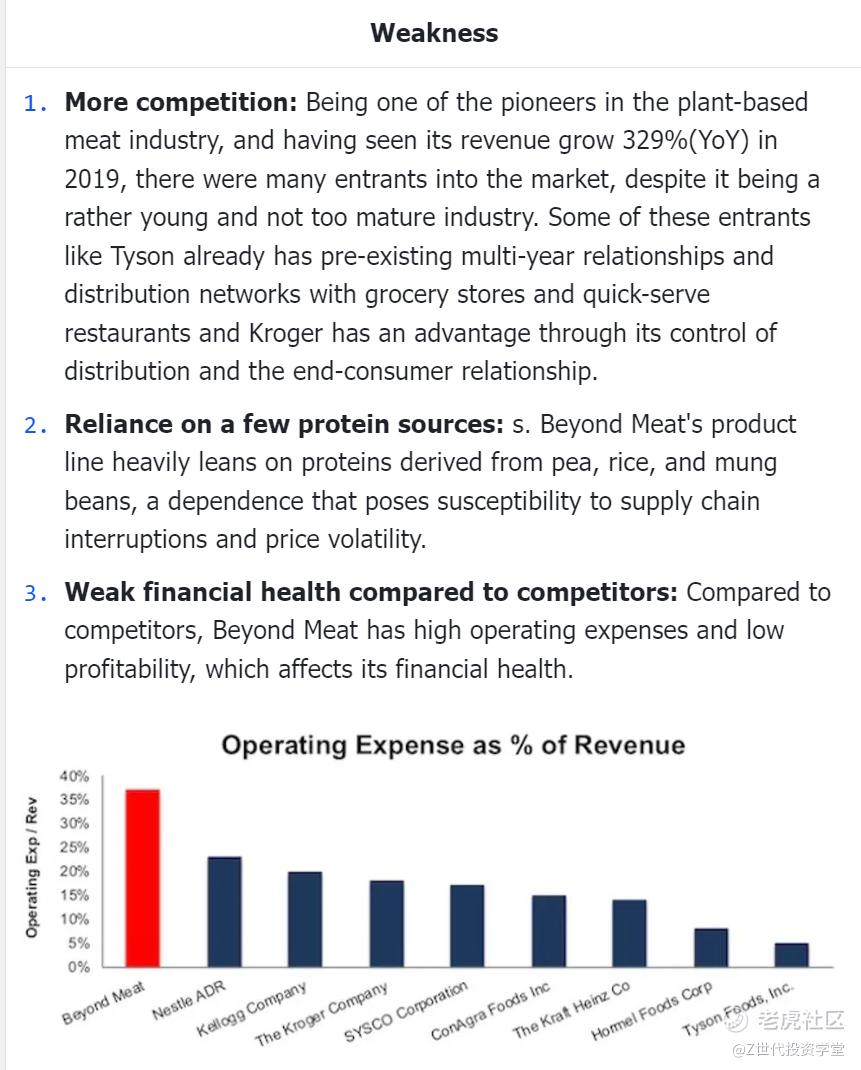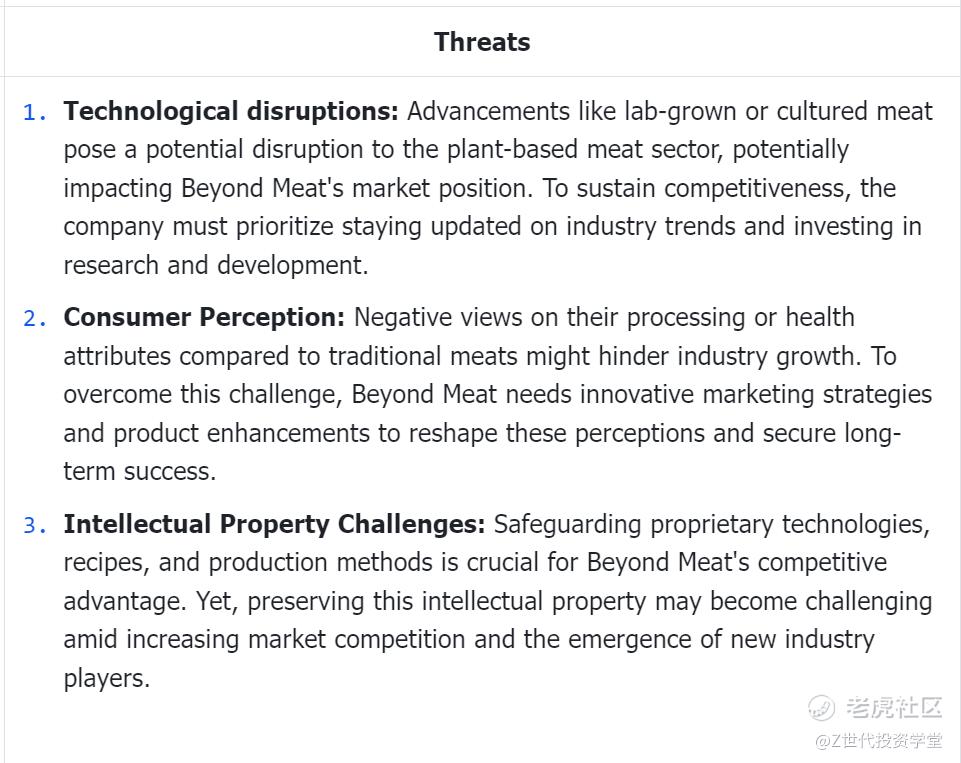Initial Report(part1): Beyond Meat (NASDAQ: BYND), -30% 5-yr Potential Upside (EIP, Pyae Phyo SHUN)
Beyond Meat (NASDAQ: BYND)
Key Information
Executive Summary :
Beyond Meat, founded in 2009, pioneers GMO-free, cholesterol-free plant-based meats, notably with the Beyond Burger. Despite consistent net losses, the company’s revenue largely stems from US and international retail partnerships and foodservice outlets. Strategic collaborations, like with Dunkin Donuts, signal growth potential, although financial indicators such as negative P/E and Free Cash Flow present challenges. With a recommendation to HOLD, monitoring market performance and growth remains crucial.
Company Overview:
Beyond Meat (NASDAQ: BYND) stands as a pioneering force in the plant-based meat industry, revolutionizing diets with its GMO-free, hormone and antibiotic-free, cholesterol-free meat alternatives. Established in 2009, the company focuses on crafting products that mirror the taste and texture of animal-based meats while championing health-conscious choices and sustainable practices. Beyond Meat's innovative lineup is meticulously designed to appeal to consumers seeking a healthier and more environmentally friendly dietary option, catering to a growing global market of individuals prioritizing both personal well-being and planetary health.
3.1 Company History
Founded in 2009 by Ethan Brown, Beyond Meat emerged to create plant-based meat alternatives mirroring the taste and texture of animal-based products. It gained prominence in 2012 with the introduction of the Beyond Burger, known for its resemblance to traditional beef burgers. The company made history by going public on the NASDAQ in May 2019. Since then, it has expanded its product range and partnered with retailers and restaurants to offer accessible plant-based options globally, emphasizing sustainability and cruelty-free alternatives.
3.2 Business segments
Beyond Meat produces a diverse range of plant-based meat products across beef, pork, and poultry categories, offered in various ready-to-cook formats. These items, free from GMOs, added hormones, and antibiotics, aim to replicate the taste and texture of traditional meats. Beyond Meat focuses on nutrition and protein content derived from pea protein, rice protein, faba bean protein, wheat gluten, and mung bean protein.
3.2.1. Revenue Drivers
The products are available in the US and global markets through retail and food service channels, which can further be segmented into direct sales and indirect sales through distributors.
Retail (in the US and internationally)
Through the retail channel, Beyond Meat sells its flagship plant-based meat products in meat cases through retail partners - Albertsons, Kroger, Wegmans, and Whole Foods Market These channels are more used and prioritized in the USA as US retail channels churn out about 77% of total US net revenue compared to foodservice channels. Similarly, US retail channels provide 3.8 times more revenue than international retail channels. As of December 2022, Beyond Meat branded products were available in approximately 78,000 retail outlets in the United States and 35,000 retail outlets internationally. Notably, the poultry platform products, consisting of mimic animal-based chicken are mainly sold in US retail channels.
Restaurants and Foodservice (in the US and internationally)
The company sells its flagship Beyond Burger and Beyond Sausages through ~12,000 restaurant and food service outlets - BurgerFi, Bareburger, Carl’s Jr., Del Taco, TGI Fridays, and A&W Canada. It recently partnered with Dunkin Donuts and is looking for more associations.
Food services are more prioritized internationally compared to the USA due to the wide network of franchise outlets globally. There is a strong focus on expanding partnerships with food service customers over time, including large full-service restaurant (“FSR”) and QSR customers in the United States and abroad. As of December 2022, Beyond Meat branded products were available in approximately 43,000 foodservice outlets in the United States and 34,000 food service outlets internationally. Their sales span retail and food service channels both in the US and internationally, and are mainly facilitated through distributors who handle product purchase, storage, and delivery. Direct sales to customers within these channels who manage their own distribution are also conducted.
Notably, DOT Foods, Inc. contributed around 12% of gross revenues in 2022 and 2021, while Zandbergen WFM accounted for approximately 11% in 2021. Costco constituted about 13% of gross revenues in 2020. No single distributor or customer represented more than 10% of gross revenues across 2020, 2021, or 2022.
However, when comparing the US and the international revenue, the US channels usually produce about 2-3 times more revenue than international channels, which could be a key point in strategising long term fund and resource allocation.
3.2.2. Cost drivers
Key
Research and Development (including investments in infrastructure)
Research and development expenses decreased $4.7 million, or 7.0%, in 2022, as compared to the prior year. Research and development expenses decreased primarily due to $7.1 million in lower scale-up expenses compared to the prior year, partially offset by higher facility lease-related costs. In addition, due to the cost-saving strategy to produce positive cashflows, layoffs and cutting down on manufacturing capacities also reduced operational expenses.
Selling, general, and administrative expenses (SG&A)
SG&A expenses increased due to $12.8 million in higher marketing programs-related expenses including advertising costs incurred to raise awareness of the products both domestically and internationally. These campaigns could help to overcome the consumers’ misconception about the plant-based meat alternatives, potentially helping to boost sales as they switch to plant-based meat.
Competitor analysis
Below is a short list of some of Beyond Meat’s alternative meat competitors:
Incogmeato by Morningstar Farms, owned by Kellogg Co. (K)
Simply Plant-Based Meatless Burger, a SYSCO Corp. (SYY) exclusive product
Simple Truth plant-based meat, owned by The Kroger Co. (KR)
Sweet Earth Brand, owned by Nestle (NSRGY)
Gardein, owned by ConAgra Foods (CAG)
Happy Little Plants, owned by Hormel (HRL)
Boca Foods, owned by Kraft Heinz (KHC)
The list is not exhaustive and does not also include any of the traditional meat product that continues to garner a large share of consumers' dollars.
SWOT analysis
Disclaimer: Investing carries risk. This is not financial advice. The above content should not be regarded as an offer, recommendation, or solicitation on acquiring or disposing of any financial products, any associated discussions, comments, or posts by author or other users should not be considered as such either. It is solely for general information purpose only, which does not consider your own investment objectives, financial situations or needs. TTM assumes no responsibility or warranty for the accuracy and completeness of the information, investors should do their own research and may seek professional advice before investing.


